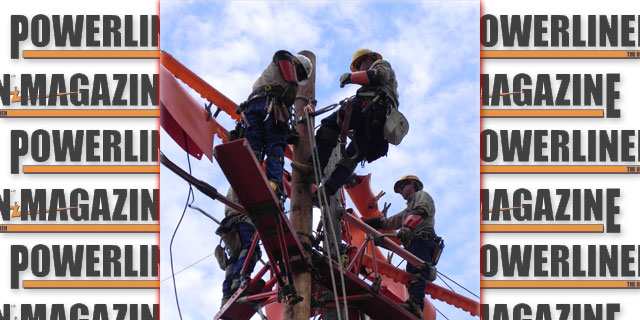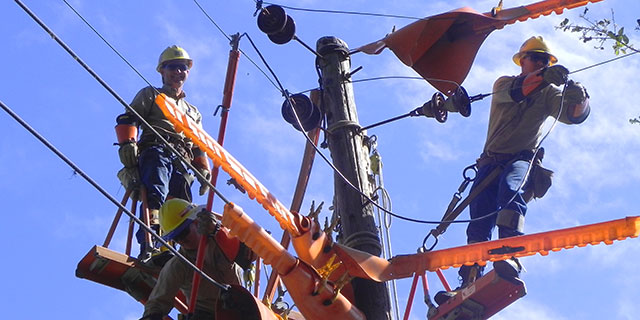Tell us about yourself, can you briefly walk us through your story – how you started and how you got to where you are today. You can include as little or as much detail as you would like.
I was a welder/fabricator and a friend’s father knew how much I was working and how much I was making. He said, “How would you like to make 20k your first year.” I thought “wow” since I was only making 14k per year at that time in 1988.
I wasn’t all that interested in linework until I started to learn more about it. I think the history of the trade is what intrigued me the most.
I learned to like the backlot work the most because it involved rigging, improvising, and learning to work without all the modern technology that will not reach those rear-lot poles.
Has it been a smooth road? If not, what were some of the struggles along the way? Any advice for other men, particularly young men who are just starting their journey?
I do not expect everyone to enjoy the trade like I have, but I do expect them to respect the trade. I have a saying “Respect the past, Appreciate the future.” You should know that the benefits and advancements that you enjoy are the results of your forefather’s hard work and the desire to develop something to make your job easier.
We would love to learn more about your work. What do you do, what do you specialize in, what are you known for, etc. What are you most proud of, either work wise or in life? What sets you apart from others?
I am a collector of pole/line tools and hardware. Mostly tools like hot sticks, rope-blocks, hooks, belts etc. Insulators are cool but once they are installed, they just sit there and do their job for forty-fifty years. A belt and a pair of hooks made a man a living and went wherever he went.
I have been involved with the International Lineman’s Museum for more than twenty years and is probably what I enjoy most about my career.
What do you feel are the biggest obstacles for linemen today, in the industry or generally?
The biggest obstacles in the industry today are the men themselves. The trade needs hard working, fearless and selfless men; those willing to give more than they can get early in their career, so that it can pay off later. We live in an “on demand society” that gives instant gratification throughout their lives. They get into this trade by the lure of money and recognition, only to find out that it can be more hard work than fame and fortune.
What is an interesting experience, encounter or the craziest thing that has happened to you while working in the line profession?
I have had the good fortune to be able to experience everything from back-lot hot-sticking to barehand transmission work. One of my most memorable experiences was reconductoring a three-phase easement. Laying out the phases, jumpering out the overhead and underground take-offs, transformers and even phasing the transformers together all with hot sticks and hot boards. There was no pressure to do this job. We were only asked if we thought it could be done. Done!
Who are some of the linemen that you know and admire? Is there anyone that has influenced you? We will check out their work and be incredibly grateful to you for bringing them to our attention.
- Ed Nelson (retired) Live-Line Demonstrator with the AB Chance Company. We became good friends and when he would come to Florida, he would take me with him on some of his Hot-Stick/Barehand jobs. I learned a ton from him.
- I enjoy my time talking history with Alan Drew (retired)of Northwest Lineman College and author of “The American Lineman.” What an authority on the history of the trade.
- Mike Glueckert (retired) Montana Power. Narrator “STORM SOLDIERS.” A fellow collector who has been no less than a mentor and advisor to me for many years. To be from about as far away as friends can be geographically, we are very close on our view and the direction of this great trade.
Contact Info:
Email: This email address is being protected from spambots. You need JavaScript enabled to view it.


